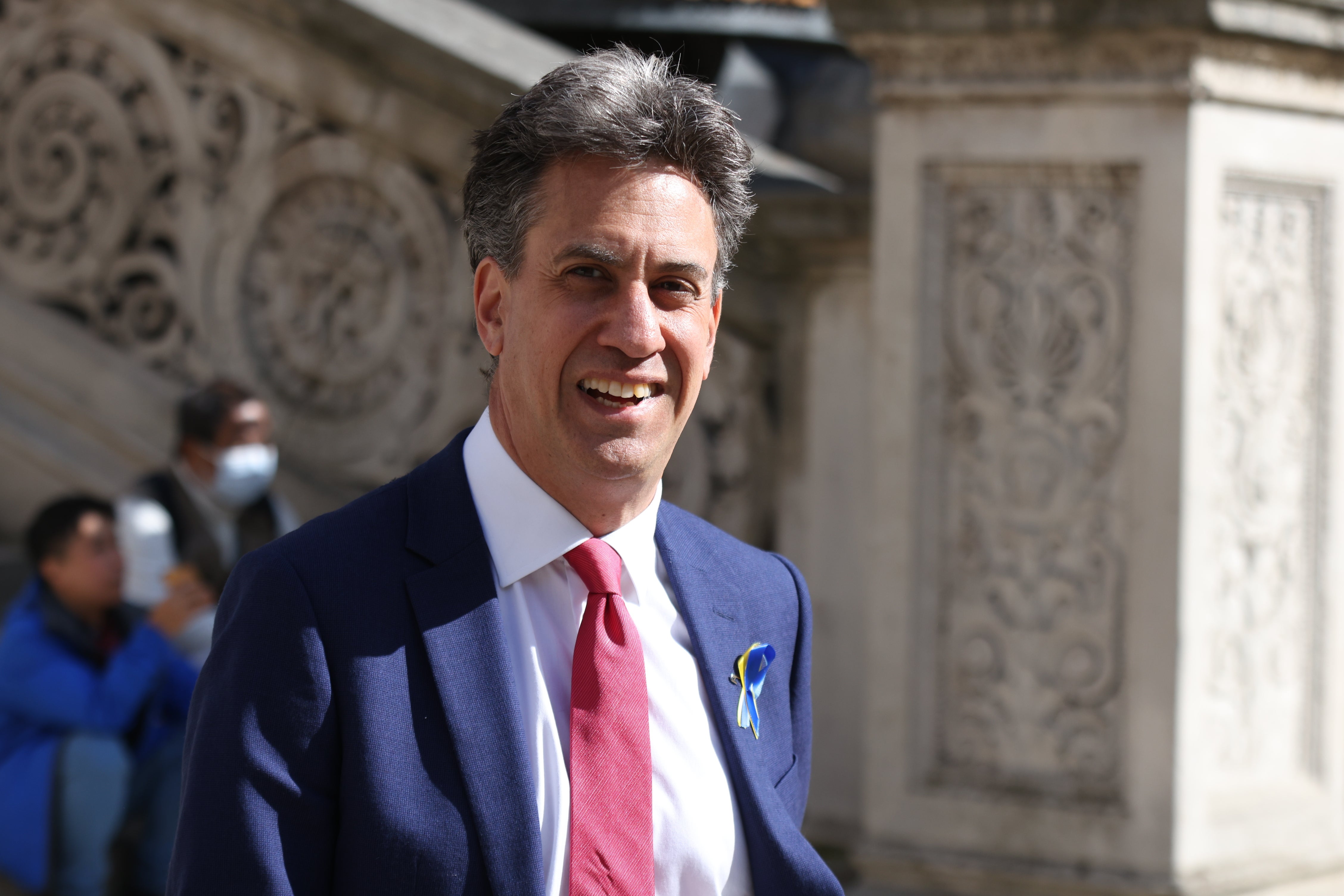Your support helps us to tell the story
From reproductive rights to climate change to Big Tech, The Independent is on the ground when the story is developing. Whether it's investigating the financials of Elon Musk's pro-Trump PAC or producing our latest documentary, 'The A Word', which shines a light on the American women fighting for reproductive rights, we know how important it is to parse out the facts from the messaging.
At such a critical moment in US history, we need reporters on the ground. Your donation allows us to keep sending journalists to speak to both sides of the story.
The Independent is trusted by Americans across the entire political spectrum. And unlike many other quality news outlets, we choose not to lock Americans out of our reporting and analysis with paywalls. We believe quality journalism should be available to everyone, paid for by those who can afford it.
Your support makes all the difference.Labour would give regulators powers to stop "scandalous" bonuses for water company bosses, Ed Miliband has said.
Speaking on Tuesday morning the shadow climate change secretary said bonuses should "not be happening" while companies were leaking vast amounts of water in the middle of a drought.
The bosses of England’s water companies – which are all monopolies with no competition – have been criticised for taking home £58m in pay and benefits over the last five years despite problems in the sector.
"It's scandalous and it shouldn't be happening, and the regulators should have powers to act on this," Mr Miliband told Sky News.
"Frankly there are real questions to be asked about the regulation of the water companies in terms of the regulation of the water companies in terms of we're seeing and those bonuses and what is happening.
"It is a scandal and I think people are rightly outraged about it."
Since privatisation, shareholders of private water companies have been paid £72bn in dividends, while the companies have collectively taken on £56bn of debt.
Meanwhile water bills have have increased by 40 per cent over the same period, while a quarter of all water supply is leaked, amounting to a loss of nearly 3,000 million litres a day last year.
The Environment Agency has declared a drought in eight regions across the south and east of England following the driest July since 1935. The West Midlands and Yorkshire are expected to join the drought alert over the coming weeks.
The drought has increased scrutiny of water companies’ records, with questions being asked about why so much water is being wasted while their bosses and shareholders are being generously rewarded.
But David Black, chief executive of the water regulator for England and Wales Ofwat, said that while he had concerns about some water companies, the picture of the sector as a whole was "complex".
"I think that companies like Thames and Southern really need to up their game. I think it's very concerning that other companies that may be performing better in the sector it casts a long shadow when we see poor performance," he told BBC Radio 4's Today programme.
"We think there isn't sufficient account given for what's actually happening in the system. So we appreciate it is complex, it is difficult to understand.
"We are determined to drive better outcomes from company performance. Companies have fallen short, we will hold them to account. We think customers deserve better, and we will keep pushing the sector to work harder and to do better."
Rejecting claims that investment had been low since privatisation he said: "The data on Ofwat's website shows that investment has been largely constant over time, but net investment in the sector has increased by fourfold since privatisation. There has been substantial investment in the sector. Over £170 billion since privatisation."
"We have 18 strategic water resource schemes being funded to be developed for the next price review. These are major new water reservoirs, major water transfer schemes."
Mr Black said targets for companies reducing leaks were "challenging but achievable".
Water was privatised in 1989 in England and Wales; in Scotland and Northern Ireland the utility remains run in the public sector.

Join our commenting forum
Join thought-provoking conversations, follow other Independent readers and see their replies
Comments